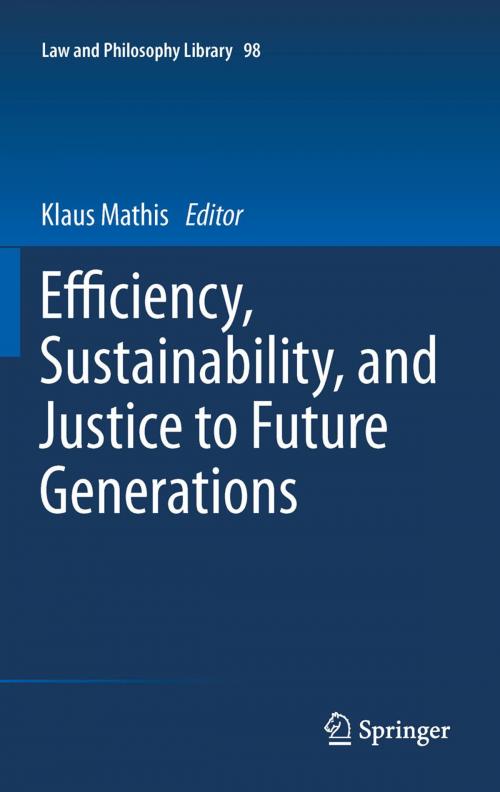Efficiency, Sustainability, and Justice to Future Generations
Nonfiction, Reference & Language, Law, Reference, Environmental| Author: | ISBN: | 9789400718692 | |
| Publisher: | Springer Netherlands | Publication: | August 13, 2011 |
| Imprint: | Springer | Language: | English |
| Author: | |
| ISBN: | 9789400718692 |
| Publisher: | Springer Netherlands |
| Publication: | August 13, 2011 |
| Imprint: | Springer |
| Language: | English |
Fifty years after the famous essay “The Problem of Social Cost” (1960) by the Nobel laureate Ronald Coase, Law and Economics seems to have become the lingua franca of American jurisprudence, and although its influence on European jurisprudence is only moderate by comparison, it has also gained popularity in Europe. A highly influential publication of a different nature was the Brundtland Report (1987), which extended the concept of sustainability from forestry to the whole of the economy and society. According to this report, development is sustainable when it “meets the needs of the present without compromising the ability of future generations to meet their own needs”.
A key requirement of sustainable development is justice to future generations. It is still a matter of fact that the law as well as the theories of justice are generally restricted to the resolution of conflicts between contemporaries and between people living in the same country. This in turn raises a number of questions: what is the philosophical justification for intergenerational justice? What bearing does sustainability have on the efficiency principle? How do we put a policy of sustainability into practice, and what is the role of the law in doing so?
The present volume is devoted to these questions. In Part One, “Law and Economics”, the role of economic analysis and efficiency in law is examined more closely. Part Two, “Law and Sustainability”, engages with the themes of sustainable development and justice to future generations. Finally, Part Three, “Law, Economics and Sustainability”, addresses the interrelationships between the different aspects.
Fifty years after the famous essay “The Problem of Social Cost” (1960) by the Nobel laureate Ronald Coase, Law and Economics seems to have become the lingua franca of American jurisprudence, and although its influence on European jurisprudence is only moderate by comparison, it has also gained popularity in Europe. A highly influential publication of a different nature was the Brundtland Report (1987), which extended the concept of sustainability from forestry to the whole of the economy and society. According to this report, development is sustainable when it “meets the needs of the present without compromising the ability of future generations to meet their own needs”.
A key requirement of sustainable development is justice to future generations. It is still a matter of fact that the law as well as the theories of justice are generally restricted to the resolution of conflicts between contemporaries and between people living in the same country. This in turn raises a number of questions: what is the philosophical justification for intergenerational justice? What bearing does sustainability have on the efficiency principle? How do we put a policy of sustainability into practice, and what is the role of the law in doing so?
The present volume is devoted to these questions. In Part One, “Law and Economics”, the role of economic analysis and efficiency in law is examined more closely. Part Two, “Law and Sustainability”, engages with the themes of sustainable development and justice to future generations. Finally, Part Three, “Law, Economics and Sustainability”, addresses the interrelationships between the different aspects.















